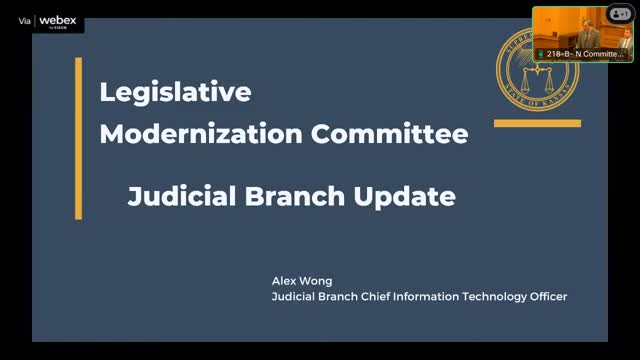Article not found
This article is no longer available. But don't worry—we've gathered other articles that discuss the same topic.

Committee advances IT and AI bills; House votes remove HB 2271 sunset, move HB 2270 and ban certain foreign-controlled AI on state devices

Legislative IT office outlines NIST-aligned cybersecurity upgrades, data storage in U.S., and row-based access controls

